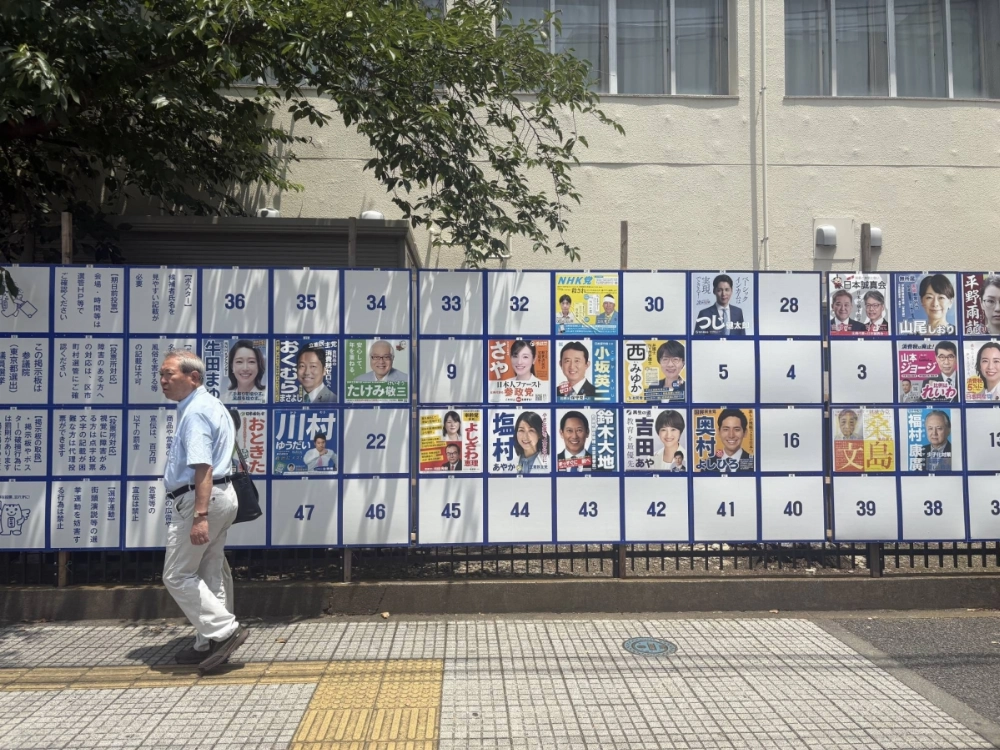A growing drive among younger voters to find an alternative to the Liberal Democratic Party is taking center stage in Tokyo ahead of Sunday's Upper House election, where it has 32 candidates in the running for seven seats.
One party receiving increased interest amid such a shift is the Democratic Party for the People (DPP), which appears to be drawing in noticeably bigger and younger crowds to their speeches on the streets in the heart of Japan.
“The DPP strongly believes in bringing back a strong Japan — at the same time, we are firmly committed to pursuing policies that shed light on those people who have been dismissed up until now as being on their own,” said the Tokyo district’s DPP candidate Mayu Ushida to a crowd in Shibuya Ward on July 11.


















With your current subscription plan you can comment on stories. However, before writing your first comment, please create a display name in the Profile section of your subscriber account page.